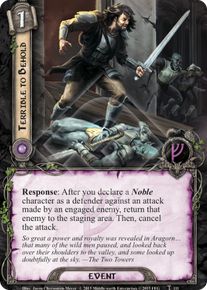Hey guys, how do you interpret the "engaged enemy" text on this card? Is it simply referring to any enemy engaged with any player, or is it implicitly referring to an enemy specifically engaged with whoever plays the card? I think I know the answer, but I've been wrong before - the text on some of these cards can be tricky.
